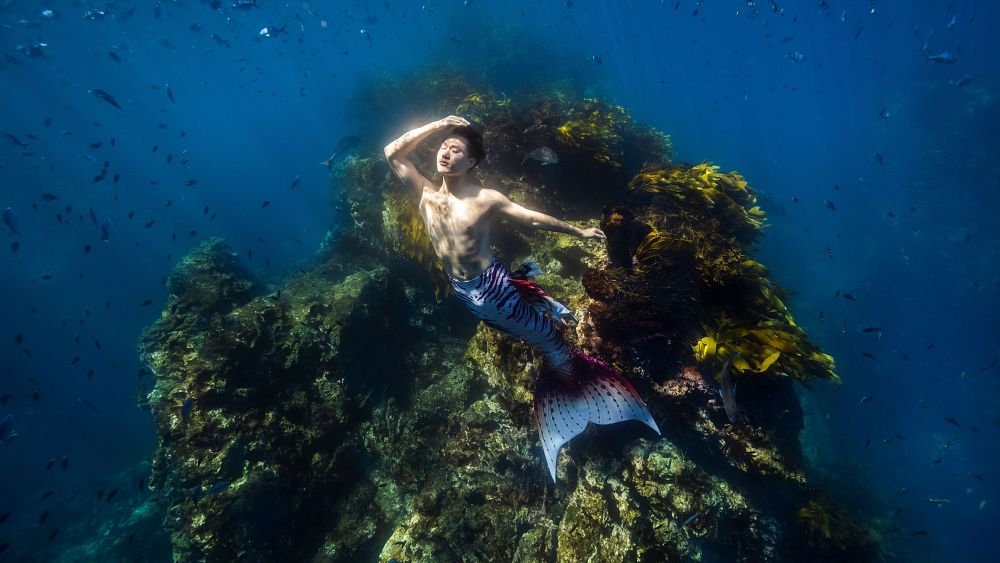We all dreamed of being the Little Mermaid as kids. Or spent hours in the pool trying to wiggle our legs to swim like one.
Well, if that dream has followed you into adult life, why not try one of PADI’s (Professional Association of Diving Instructors) mermaid training courses?
Anyone over the age of six can start their mermaid journey, and learn to breath-hold, swim with a tail, read ocean conditions, and respect and protect marine life.
What is mermaiding?
Combining elements of freediving with wearing a ‘monofin’ or mermaid tail, the art of ‘mermaiding’ is an exciting new way to explore beneath the ocean’s surface.
“It’s a challenge physically, it’s also a challenge mentally to be able to unplug and be quiet and listen - but when you do, you realise that it’s so worth it,” says Julie Andersen, PADI global brand director and mermaid instructor.
PADI's Mermaid Program launched globally in 2021. It started in China with a Guinness World Record for the Largest Underwater Mermaid Show. Since then, PADI has held the first National Mermaid Competition, establishing mermaiding as a national sport in China, and organised eight more competitions throughout Asia.
Mermaiding has made waves across the world, capturing the imagination and curiosity of all ages and genders.
How do I become a mermaid?
There’s a number of different courses you can do with PADI depending on your previous experience, age and how much time you have.
The Basic Mermaid course is available to anyone over six years old who can swim at least 25 metres. As well as developing your swimming technique, this course focuses on problem prevention and solving to keep you safe in the water. It also gives you a certificate meaning you can move onto more advanced training beyond the pool.
If you’re committed to becoming a fully fledged mermaid and are over 12 years old, the most comprehensive option is the PADI Advanced Mermaid course. This cements all the training from the basic course but also adds two open water sessions where you can really flip your tail and live your best mermaid life.
“The first time we do mermaiding, we do it with a mask,” explains Yingtao Lei, a PADI mermaid instructor in China.
“As their ability improves we can rip off the mask… The first time I did that in the ocean, I think it’s really free.”
One of the biggest focuses of the training is breathwork - learning to hold your breath for extended periods - as, unlike divers, mermaids don’t use any breathing apparatus.
But there’s more to mermaiding than just swimming in the ocean. Certified PADI Mermaids are encouraged to use their passion for the ocean for good and advocate for its protection.
PADI is on a mission to protect 30 per cent of the ocean by 2030 through its Adopt the Blue program. Alongside Ocean Torchbearers, the organisation is rallying to turn the world’s largest network of underwater sites into marine protected areas.
Where can I learn to mermaid?
PADI offers mermaid training in 24 countries including the USA, France, Germany, Greece and the Netherlands.
A particular favourite location amongst the PADI mermaid team is New Zealand. At their dive centre in Northlands you can take a trip out to the Poor Knights Islands Marine Reserve.
“New Zealand is how you imagine the world once was, before so many places began taking from the earth more than they gave back,” says Julie.
“The islands are as spectacular biologically as they are architecturally, thanks to the dozens of caves, arches and tunnels. I loved exploring the ancient structures made from volcanoes active millions of years ago, especially the Rikoriko, which felt like diving in a time capsule.”
Watch the video above to see PADI’s mermaid team explore the Poor Knights Islands Marine Reserve.


